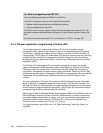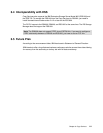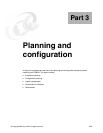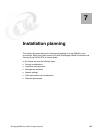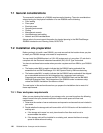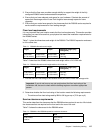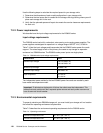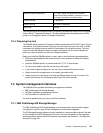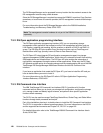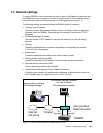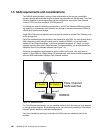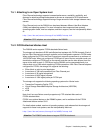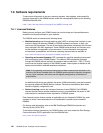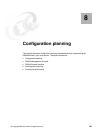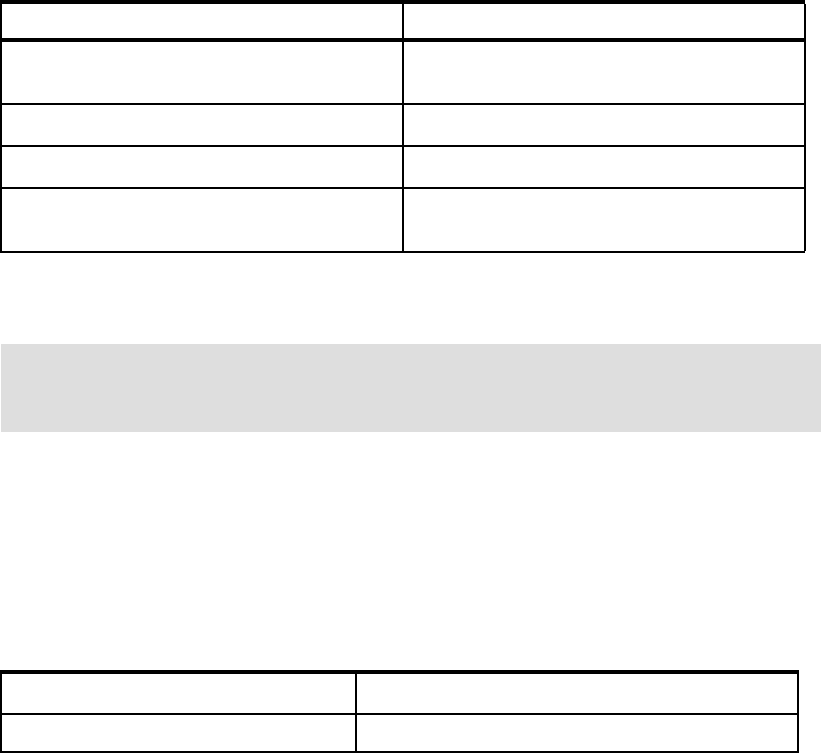
118 DS6000 Series: Concepts and Architecture
Use the following steps to calculate the required space for your storage units:
1. Determine the dimensions of each model configuration in your storage units.
2. Determine the total space that is needed for the storage units by planning where you will
place each storage unit in the rack.
3. Verify that the planned space and layout also meets the service clearance requirements
for each unit.
7.2.2 Power requirements
We describe here the input voltage requirements for the DS6000 series.
Input voltage requirements
The DS6000 series has built-in redundant, auto-sensing, auto-ranging power supplies. The
power supplies are designed for operation in a voltage range of 90-257 V AC, 50-60 Hz.
Table 7-4 lists the input voltages and frequencies that the DS6000 series power line cords
support. The values apply to both of the primary line cords to any storage or expansion
enclosure in a DS6000 series. The DS6000 series power inputs are single phase.
Table 7-4 DS6000 series input voltage requirements
Two independent power outlets for the two DS6000 power line cords are needed by each
base model and expansion model.
7.2.3 Environmental requirements
To properly maintain your DS6000 storage unit, you must install your storage unit in a location
that meets the operating environment requirements.
Table 7-5 describes the environment operating requirements for the DS6000 series.
Table 7-5 Operating environment
Characteristic Value
Nominal input voltages 100-127 RMS V AC
200-240 RMS V AC
Minimum input voltage 90 RMS V AC
Maximum input voltage 264 RMS V AC
Input frequencies 50 ± 3.0 Hz
60 ± 3.0 Hz
Important: To eliminate a single point of failure, the outlets must be independent. This
means that each outlet must use a separate power source and each power source must
have its own wall circuit breaker.
Powered on temperature limit 10 - 40° C (50 - 104° F)
Powered off temperature limit 10 - 52° C (50 - 126° F)



